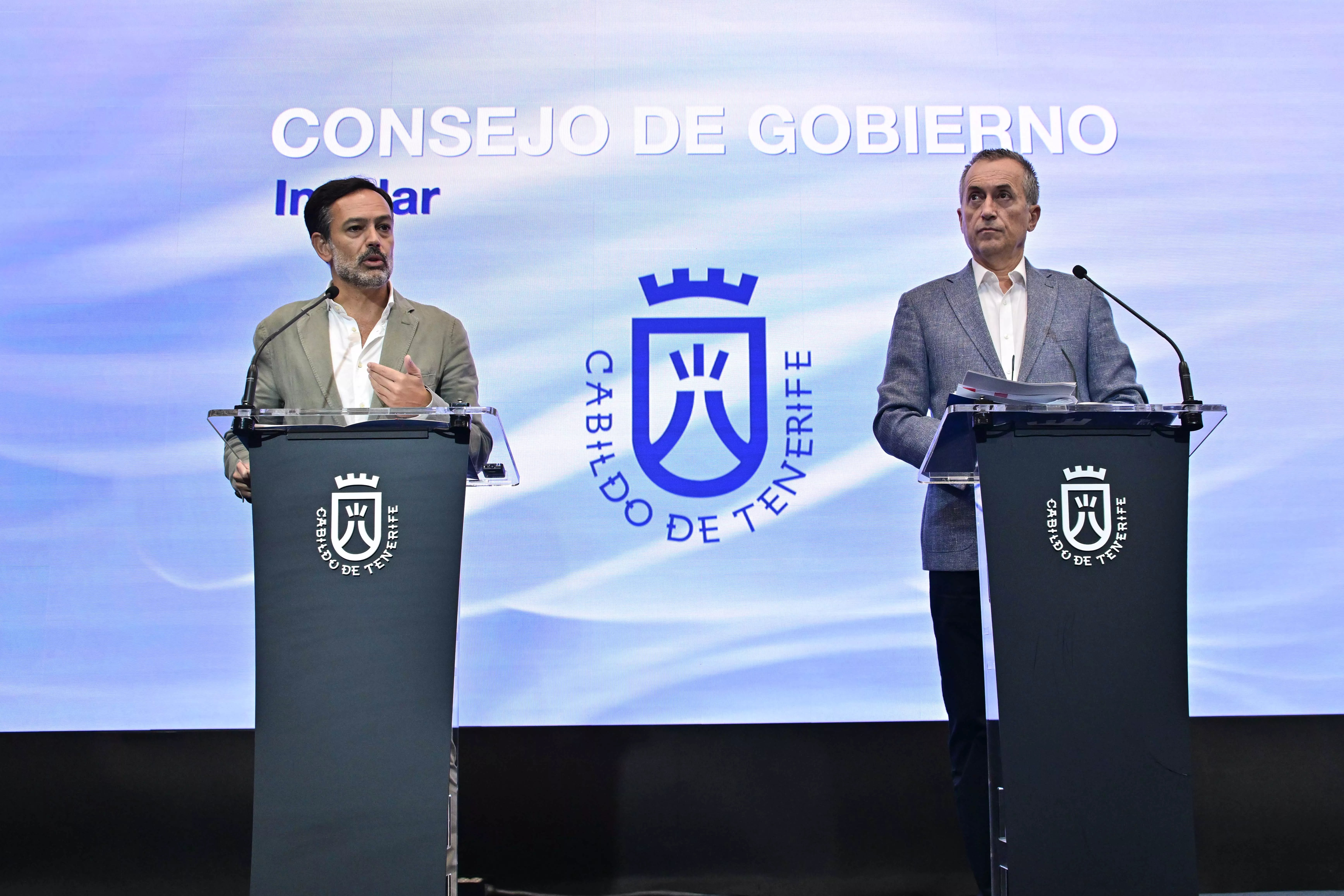SANTA CRUZ DE TENERIFE, July 21 (EUROPA PRESS) –
The former Minister of Finance and Public Function of the Government of Spain, Cristóbal Montoro, denied this Thursday that the Economic and Fiscal Regime (REF) is a “privilege” for the Canary Islands, on the contrary it is a “difference that responds to a singularity”.
This was indicated in a round table held in the Parliament of the Canary Islands on the occasion of the fiftieth anniversary of the island’s jurisdiction, in which Jerónimo Saavedra, former president of the Government of the Canary Islands and former minister, also participated; Rosa Dávila, second vice president of the Parliament of the Canary Islands and former Minister of Finance of the Government of the Canary Islands, and José Carlos Francisco, president of the Economic and Social Council of the Canary Islands and former Minister of Finance of the Government of the Canary Islands.
Montoro also remarked that the REF “contributes to the nation as a whole” and valued having “had the immense opportunity to favor these positive differences”.
The former minister said that Spain “is a first-line member country of the EU” and assured that as a Spaniard he feels “proud to have invented this governable, rigorous and sensible country in terms of social cohesion from the different territories that make it up, responds to elements of its own history.
Montoro pointed out that in these “complex” moments in which there is “a lot of revenue, tax incentives must be fully used, because it is time” and affirmed that it is necessary to “insist on advancing, on progressing given the positive results that are being achieved” .
At this point, he pointed out that the average income level of the Canary Islands “has to continue to improve, singularities are not the solution to everything and we must continue to make other types of policies that promote development, well-being and the distribution of wealth.”
In his speech, Saavedra stressed that from a “utopian effort in the midst of a dictatorship, the vision of autonomy arose, always accompanied by the REF” and indicated that in the 1972 document there is already a reference to the fact that international standards must take into account the Canaries peculiarities.
José Carlos Francisco, for his part, maintained that the foundations of the REF “were laid, without a doubt, in the law of 1972” and valued the enormous merit of the people who drew it up, “because of the historical moment and because it is a very good”.
“Those legislators of 1972 had insight and vision of the future when they said that if the State were integrated into supranational organizations, the specificities of the Canary Islands would always be taken into account,” he said.
The president of the CES assured that the REF is “a constant struggle, a constant adaptation, it must be maintained and strengthened if there is something that distinguishes the Canary Islands, it is the Economic and Fiscal Regime, and it is what differentiates and also what unites”.
Along these lines, Rosa Dávila explained that in 2018 they thought that they had “shielded the REF and that it would never have to be played again, but the truth is that in one way or another it is being played.”
The also vice president of the Parliament of the Canary Islands highlighted the importance, in this sense, of “political dialogue and consensus around the REF in order to shield it, because it is not”.
Dávila indicated that until 2018 “profound social changes and legislative reforms had taken place” since the last reform. “Achievements that had been achieved throughout history were anchored; our RUP condition was recognized -something that must continue to be explored-, social issues were collected and fiscal aspects were improved”.
The former minister also highlighted that “the enormous luck of negotiating the REF at the same time as the Statute of Autonomy” occurred.
THE CANARY ISLANDS OF THE NEXT 40 YEARS
At the event, the President of Parliament, Gustavo Matos, recalled that in 2022 it will be forty years of parliamentarism in the Canary Islands.
“With the approval of the Statute of Autonomy, our self-government began, so this anniversary is a good time to put on the high beams and imagine what the Canary Islands we want for the next forty years,” he said.
The president affirmed that these four decades in which the building of autonomy in the Canary Islands has been “built, there is no doubt that self-government has brought with it the best years in the history of the islands.”
He also stressed that it is necessary “to make a great effort to ensure that citizens value such an important instrument as the REF”.
He stated that the Canary Islands “are at the best moment in their history and have, for the first time, the tools to not miss the train of modernity, to compete on an equal footing.”
The event concluded with a recognition of the recently deceased José Miguel González, considered one of the fathers of the REF and a great connoisseur of Canarian taxation.
“These forty years of Parliament must also serve to value those who have sacrificed their personal and family life, the people who have brought us here, and one of them is José Miguel González for his work, career and contribution. It was a great person and someone to whom we owe much of what we are and what we will be in the Canary Islands”, said the president.

















